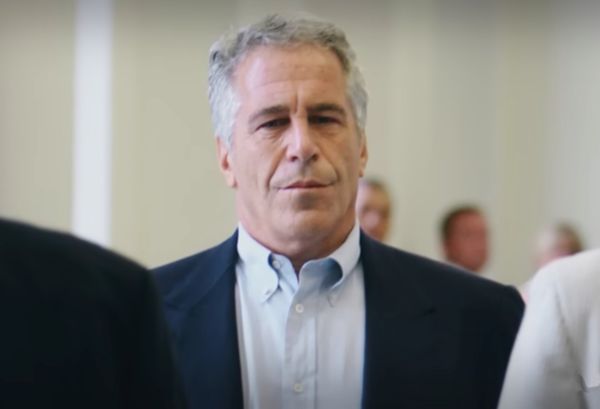
Iranian hardliners are urging their government to exact revenge on the UK and deliver a blow to its spying network by revealing the true names of the British intelligence agents who supposedly worked with Alireza Akbari, the British-Iranian dual national who was executed on Saturday for allegedly spying for the UK.
The call – made by Hossein Shariatmadari, the editor of the Kayan, the newspaper closest to the Islamic Revolutionary Guards Corps (IRGC) – shows hardliners are intent on a confrontation with Britain over the issue.
Akbari’s devastated family deny he was a spy and insist he is the victim of an internal power struggle within the regime. The former British ambassador to Tehran, Richard Dalton, has suggested Akbari’s execution, condemned by world leaders as barbaric, may be a warning to the UK not to go ahead with plans to proscribe the IRGC.
The Labour party backed proscription for the first time on Sunday, saying the move is justified by “the growing threat that the IRGC poses on UK soil, as well as in response to the crackdown on protests, the unjust imprisonment of British nationals in Iran, the execution of Alireza Akbari, longstanding concerns about Iran’s threats to Israel, and its support for violent groups across the region”.
James Cleverly, the foreign secretary, is travelling to Washington this week, where he will seek to coordinate a response to Akbari’s execution and the wider security threat posed by Iran. So far he has recalled the UK ambassador to Tehran for consultations and sanctioned the Iranian prosecutor general.
Shariatmadari wrote: “Now it is our turn to take revenge, and it is expected that the Ministry of Information will provide some information related to the leads, commanders, and agents of the British and Mossad intelligence services who were involved in technical interrogations and publish the expert knowledge obtained.”
This move, if undertaken quickly, he said, “would be a terrible blow to the body of the British spy system and its foreign intelligence and espionage department, MI6”.
Shariatmadari added: “There are also questions about how this spy infiltrated the sensitive and strategic centres of the system, which should not be simply ignored.”
With Iran gripped by gas shortages and power cuts in freezing temperatures, there were also calls for a deepening of its security and energy relationships with Russia.
The US has already proscribed the IRGC, and some US Republicans are becoming exasperated with the failure of European nations to follow suit. Claudia Tenney, a member of the US Congress foreign affairs committee, tweeted on Saturday: “Iran’s execution of British-Iranian dual national Alireza Akbari is yet another act of barbarism from this brutal regime. Enough empty statements of condemnation from European capitals. The time is now for action – full sanctions, especially on the IRGC & all senior regime officials.”
The policy difficulty for Europeans is that the IRGC is already sanctioned and evidential thresholds have to be met before the IRGC can be proscribed as a terrorist organisation.
But the calls for a broader strategic reappraisal of the west’s approach to Iran are growing after the continued daily repression of protests and the impasse in nuclear talks. More than 60 French senators have officially requested that the EU close Iranian banks in Europe and ban the passage of Iran Air planes from European skies, as well as abandon the nuclear agreement known as the Joint Comprehensive Plan of Action (JCPOA) completely.
At the same time, 100 MEPs have asked for the IRGC to be designated a terrorist entity, in a call due to be debated by the European parliament in Strasbourg on Tuesday. Antagonism towards Iran has also grown due to the Iranian supply of drones to Russia that have been used in Ukraine.
A senior Iranian parliamentarian said on Sunday that the alliance with Russia would be deepening, with the supply of Sukhoi Su-35 fighter jets early in the next Iranian year, which starts in March. Shahriar Heydari, a member of the Islamic Republic’s parliamentary commission for national security and foreign policy, did not specify the number of aircraft ordered.
Opinion appears more divided in European capitals about the wisdom of formally ending the already stalled talks on the nuclear deal, with some ministers concerned that a dangerous vacuum would be filled by Iranian hardliners that would then speed up its uranium enrichment programme or pull out of the nuclear non-proliferation treaty.
The outgoing chief of staff of the Israel Defense Forces, Aviv Kochavi, said on Sunday that economic sanctions and a military option involving more than Israel might yet convince Tehran to suspend its nuclear military programme, as it did in 2003.
“The best strategy now would be to further intensify the economic sanctions on Iran, to build up a military option not only of Israel. Then maybe the total of these pressures would bring them to a situation as in 2003, when they decided to suspend the military aspect of the nuclear programme,” he said.
“Basically, it would be worth reaching a new agreement that’s better – not reasonable and not good, but better, one that neutralises some of the flaws of the previous agreement.”







